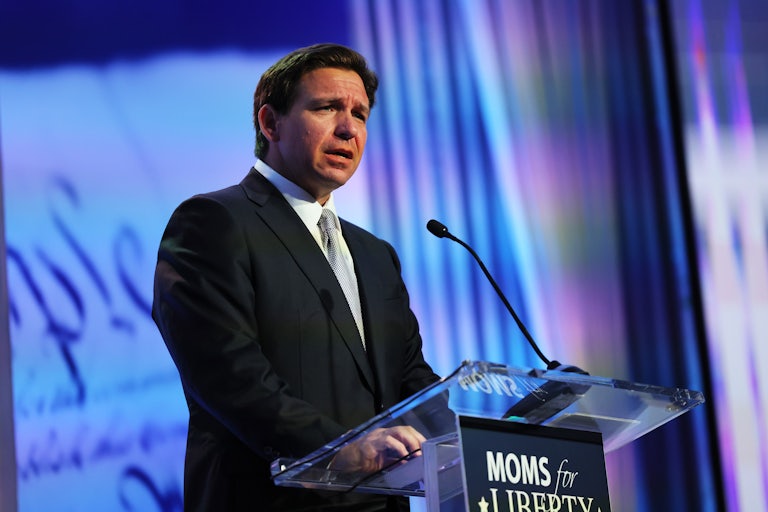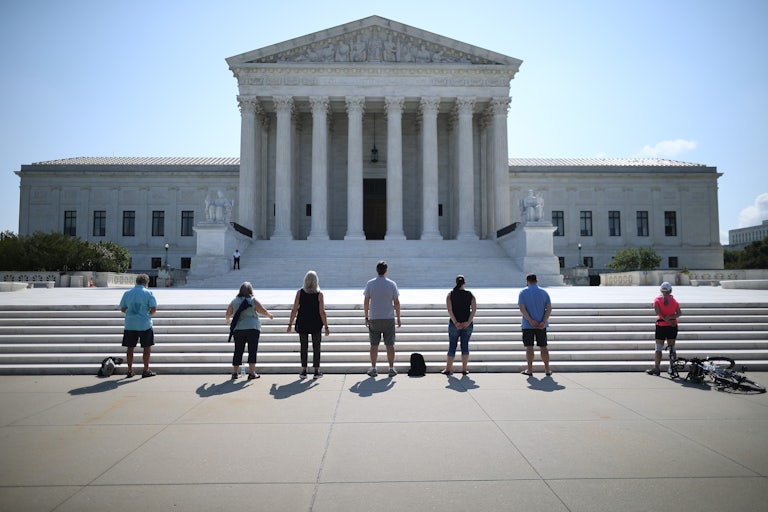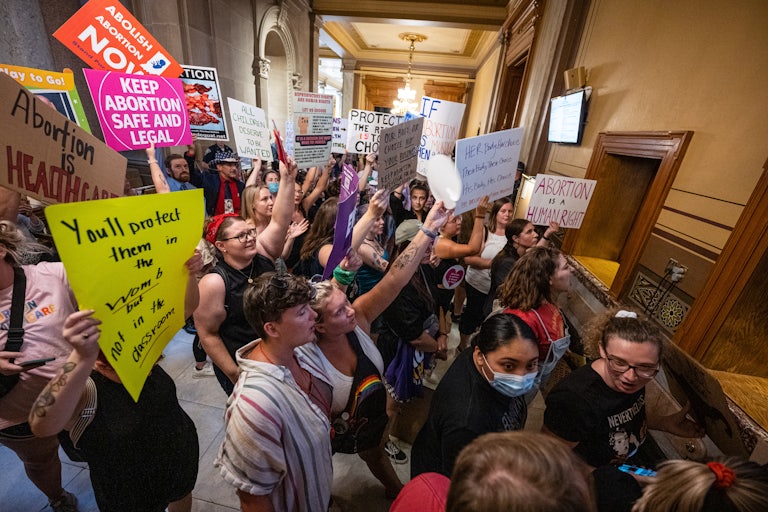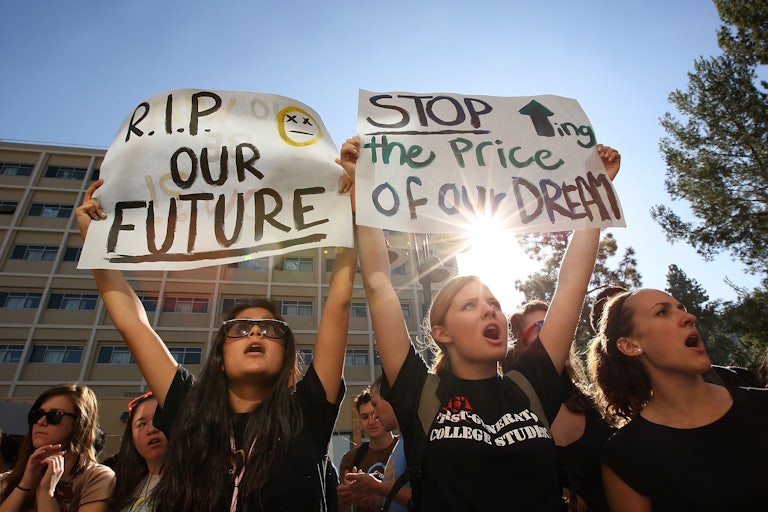States Enact New Laws on Controversial Issues Such as Abortion
New rules on education, transgender issues, and marijuana are among the hundreds of new measures in effect in July.

Hundreds of new state laws went into effect on July 1, with red and blue states flexing their ideological muscles on issues such as marijuana, gender-affirming care, book bans, and abortion. Here’s a rundown of some of the critical new measures now in effect:
Abortion
North Carolina’s new 12-week abortion ban went into effect on Saturday, after several last-minute revisions by the state legislature.
A bill banning abortion after six weeks was supposed to go into effect in Florida on July 1, but has been delayed pending court action on the state’s current 15-week ban.
A ban on medication abortion was set to go into effect in Wyoming on Saturday, but a judge blocked it.
Transgender rights
A new law in Georgia bans gender-affirming care for minors, with medical professionals at risk of losing their licenses if they provide hormone therapy or gender-transition surgery to anyone under 18. A similar law also went into effect in South Dakota.
A federal judge temporarily blocked part of Tennessee’s law banning gender-affirming care for minors, preventing the state from enforcing a ban on hormone therapies and puberty blockers for minors. However, the portion of the law barring gender-transition surgery for individuals under 18 went into effect on Saturday.
The Kansas legislature recently overrode Governor Laura Kelly’s veto of legislation barring transgender individuals from using restrooms, locker rooms, domestic violence shelters, and rape crisis centers in accordance with their gender identities. That law went into effect on Saturday.
Education
Several of Governor Ron DeSantis’s priorities are now the law of the land in Florida, just in time for him to campaign on the new laws in his presidential stump speech. The state’s “Don’t Say Period” bill went into effect on Saturday, banning instruction on menstruation, sexually transmitted infections, and sexuality before sixth grade. Instructors teaching sex education must also focus on abstinence outside of marriage and teach the “benefits of monogamous heterosexual marriage.” Moreover, teachers will no longer be able to ask a student’s preferred pronouns or refer to a student by their preferred pronouns.
School libraries in Iowa will need to remove books with “sex acts,” according to a new state law that also bans instruction related to sexuality and gender identity until sixth grade.
A new law in North Carolina also allows individuals to carry concealed firearms on school grounds.
Criminal justice
A near-complete ban on no-knock warrants went into effect in Minnesota on Saturday, after a SWAT officer shot and killed a man during a raid with such a warrant last year.
California now permits former criminal offenders to seal their records if they have not committed another felony four years after finishing their sentences.
Maryland became the twenty-first state to legalize recreational marijuana on July 1, and Connecticut residents 21 and older can now grow up to six cannabis plants.
Other notable laws
A law banning TikTok on state-owned devices went into effect in Georgia on Saturday. Indiana repealed a law banning throwing stars, which are once again legal except for use on school properties. Nevada increased its penalties on drunk driving, Iowa now allows teenagers to work longer hours, and Mississippi formally designated the blueberry as its state fruit.








